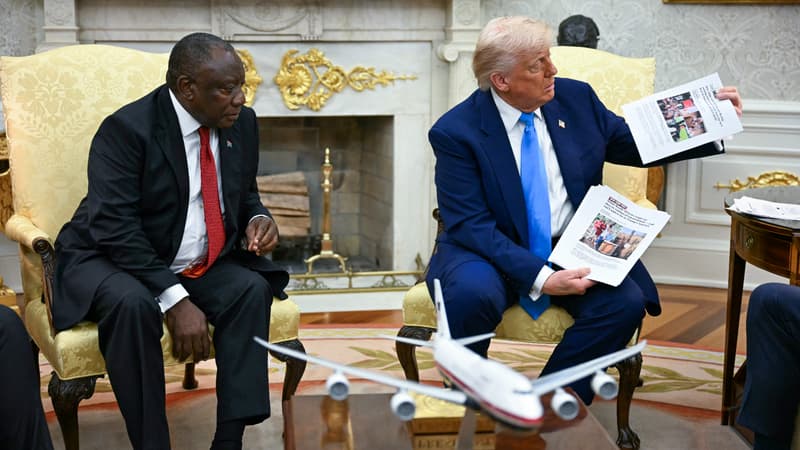The proposal is ambitious, participation is crucial. After denouncing the application of customs duties by the Trump Administration, South Africa is preparing to propose a new “generous” commercial agreement in Washington on Tuesday, announced South African trade and agriculture ministers during a press conference.
Tens of thousands of jobs are at stake in the first economy of the continent, beaten from Friday in 30% customs surcharge in most exports to the United States, the third shopping partner of Pretoria.
The duo did not reveal the details of the new offer on Tuesday, but they told journalists who had access to a previous Washington request to increase the imports of Pretoria of American Pultry, Blueberries and pork.
The agricultural, automotive and textile sectors depend particularly on the US market in South Africa, a country where unemployment increased in the second quarter to increase to 33.2% (+0.3%) and receive 8.4 million people, according to official figures transmitted on Tuesday.
It could still get worse under the effect of American customs surcharge that could cost Pretoria from 30,000 to 100,000 jobs, according to the respective estimates of the Ministry of Commerce and Industry and the governor of the Central Bank.
A political problem
The team of the South African President Cyril Ramaphosa was criticized for not having concluded with Washington a global agreement, especially for the Democratic Alliance (DA), a partner of the circumstances of the African National Congress (ANC) of the Head of State in the Government’s coalition, but the historical opponent of the ruling party since the end of Apertheid.
The leader of the DA, Minister John Steenhuisen, said Tuesday that US diplomats had raised discussions at the internal policy points of South Africa, who was “surprising since (he) thought he was within the framework of a commercial negotiation.”
Among the public criticisms of the administration of the US President, Donald Trump, are a recent law aimed at facilitating the redistribution of the land and more generally of the positive discrimination policies aimed at reducing the inherited inegures of the apartheid, the old white minority regime.
“Measures such as expropriation without compensation or certain ethnic laws in force in the country are considered obstacles to trade with South Africa,” said John Steenhuito at AFP, whose party itself requests the revision of this legislation.
Other countries, including Brazil (50%) and India (50%), have been beaten by “much more punitive prices” due to ideological disagreements with the Trump administration, added John Steenhuisen.
Source: BFM TV


